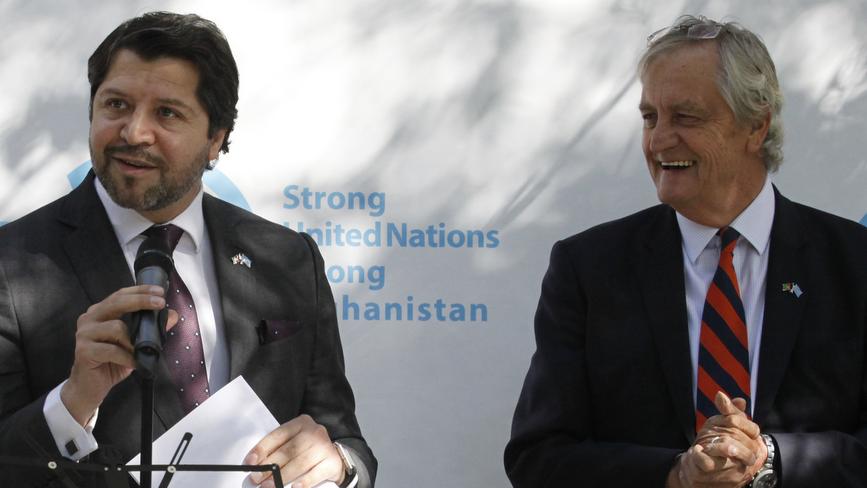KABUL - The threat from increasing terrorist activities in the region can be countered through regional cooperation and coordination, including effective joint action strategies, said Nicholas Haysom, the UN Secretary-General’s Special Representative for Afghanistan, today at a regional counter-terrorism meeting in Kabul.
He urged partners to live up to their earlier commitment to hold a senior official’s meeting at the earliest opportunity to develop a regional counter-terrorism strategy.
“We recognize growing concerns within the Heart of Asia region about increasing terrorist activities and the formation of new terrorist groups actively recruiting in this region,” said Mr. Haysom at the Heart of Asia Counter-Terrorism Regional Technical Group Meeting.
Mr. Haysom said given that terrorism is a threat to the entire region, the solution lies in developing regional consensus, cooperation and coordination, and by developing coherent strategies for effective joint action by all countries in the region.
Turning to the situation in Afghanistan, Mr. Haysom said that the country continues to face a difficult security environment, “with the presence of both indigenous and foreign terrorist groups, which we can expect to become more active with the onset of the spring fighting season.”
“The Government is making every effort to address these issues, both by encouraging insurgents to join the peace process, and by exercising force against those who continue to conduct terrorist attacks,” said Mr. Haysom.
The Heart of Asia, also known as the Istanbul Process, provides an agenda for regional cooperation with Afghanistan at its centre. The aim is a peaceful and stable Afghanistan, along with a secure and prosperous region as a whole.
Fourteen countries, including Afghanistan, Pakistan, India, Iran, China and Russia, comprise the Heart of Asia group, which also involves a number of regional and international organizations.






